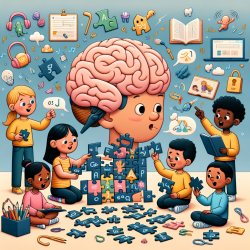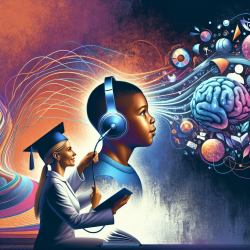Unveiling the Complexities of Auditory Processing in Children with Listening Difficulties
Auditory processing disorders (APD) can significantly impact a child's ability to learn and communicate effectively. As highlighted in the recent study "Assessing Auditory Processing in Children with Listening Difficulties: A Pilot Study," understanding these complexities is crucial for developing effective intervention strategies.
Key Findings from the Study
The study conducted by Omidvar et al. (2023) evaluated 20 children, including those with listening difficulties (LiD) and typically developing (TD) peers. The research combined behavioral auditory processing tests with electrophysiological measures such as click and speech auditory brainstem responses (ABR).
Significant differences were observed in the performance of children with LiD compared to their TD counterparts. Specifically, LiD children showed poorer results in behavioral tasks and exhibited smaller wave I amplitudes and longer latencies in speech-ABR waves D and E.
Implications for Practitioners
For practitioners, these findings emphasize the importance of a dual approach in assessing auditory processing capabilities. By integrating behavioral assessments with electrophysiological testing, practitioners can gain a comprehensive understanding of a child's auditory processing abilities and challenges.
- Behavioral Testing: Includes tasks like binaural integration, binaural separation, and auditory closure, which can identify functional auditory processing issues.
- Electrophysiological Testing: Click-ABR and speech-ABR provide insights into neurophysiological deficiencies, especially at the brainstem level.
Encouraging Further Research
While this pilot study provides valuable insights, it also highlights the need for further research with larger sample sizes. Future studies could explore the relationship between behavioral test results and specific FFR manifestations. Additionally, investigating FFR recordings in noisy environments could offer deeper insights into neural inconsistencies in processing speech stimuli among children with LiD.
For practitioners interested in delving deeper into this research, the original paper provides a comprehensive analysis of the methodologies and findings. Assessing Auditory Processing in Children with Listening Difficulties: A Pilot Study










